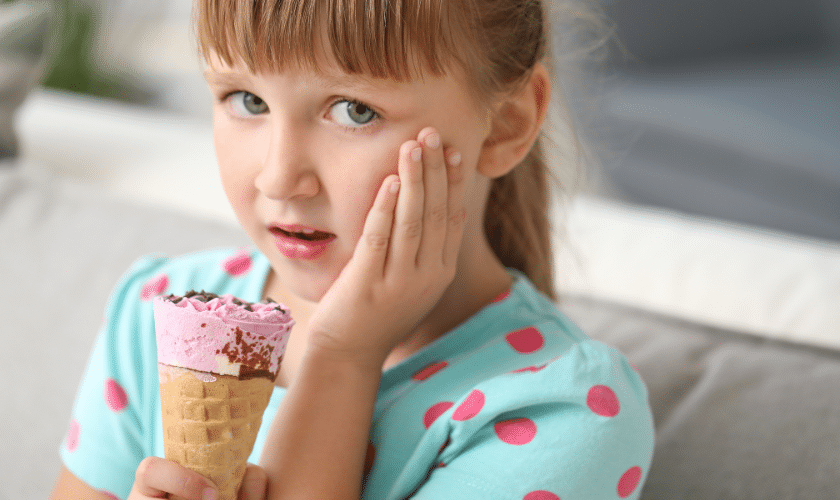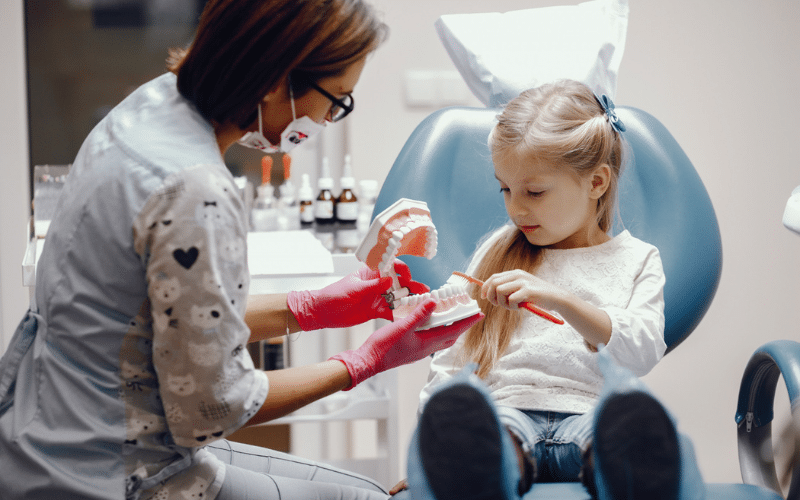ONLINE SCHEDULING AND VIRTUAL CONSULTS AVAILABLE

When Should You Consult A Pediatric Dentist?

You would go to any length as a parent to protect your child’s health. One of the best ways to protect your child’s health is to prioritize basic oral hygiene. While many of these tasks can be completed at home under your supervision, seeing a pediatric dentist is always a must. The primary reason being some aspects of dental maintenance and treatment is impossible to recreate on your own. Moreover, oral problems account for 51 million school hours lost each year. You may be able to teach your child how to properly brush and floss their teeth, but they will need the supervision and guidance of a pediatric dentist.
If you’ve been procrastinating the task of finding a pediatric dentist in your area or rescheduling appointments due to other commitments, you may be unknowingly jeopardizing your kid’s oral health. We have provided the five signs when you should see a pediatric dentist right away to avoid more trouble.
It Is Important To See A Kids’ Dentist If:
- Your child is in excruciating pain due to dental problems – While minor discomfort might be overlooked, severe or chronic tooth pain should be handled immediately. Dental decay, a damaged tooth, or other underlying issues could be the source of this pain. Even if your child’s pain goes away, it’s critical to figure out what’s causing it and talk to your pediatric dentist about the issue.
- If your kid’s teeth are stained or discolored – Whether your child still has all of their baby teeth or has been visited by the Tooth Fairy, tooth discoloration isn’t natural. If kids develop white patches on their teeth, it could be a sign of dental cavities or tooth decay. Teeth that have turned grey, brown, or even black require immediate professional attention. Time is crucial since degradation can occur quickly.
- In case your child is suffering from teeth sensitivity – Adults experiencing tooth sensitivity might not think it’s serious enough to book an appointment at a dental office. Oral sensitivity in toddlers, on the other hand, often suggests the development of cavities – particularly if your child has difficulties eating hot or cold foods. Don’t ignore this issue because their sensitivity (and cavities) may worsen.
- If your kid has inflamed gums and suffers from gum bleeding – Gums that are swollen or bleeding are generally signs of disease or infection. Although you may feel that gingivitis is solely a problem for adults, it can also affect children. Plaque buildup in your child’s mouth can lead to gum irritation and the eventual loss of permanent teeth. Dental decay can also result in the formation of an abscess on the gums, which is extremely painful. Contact your child’s dentist right away if you notice any irritation or persistent bleeding in this area.
- If your one-year-old child has not visited a dentist yet – An oral health problem may not necessarily require a visit to a pediatric dentist. If your kid hasn’t seen a dentist since his/her first birthday, this is one of the most serious signs that should be investigated. Children should see a dentist by their first birthday or within six months after the eruption of their first tooth, according to the American Academy of Pediatric Dentistry (whichever comes sooner). If your child has reached certain developmental milestones, he/she is due for a pediatric dental examination.
We hope that you now know the exact signs that tell you to visit a pediatric dentist. If you are looking for the best children’s dental care in Plantation and the surrounding, book an appointment at My Dentist For Life.




